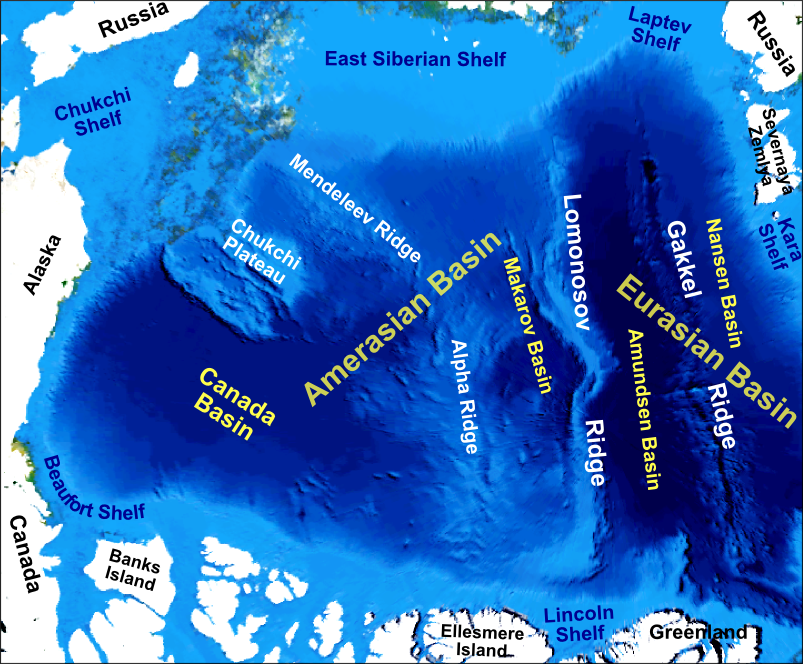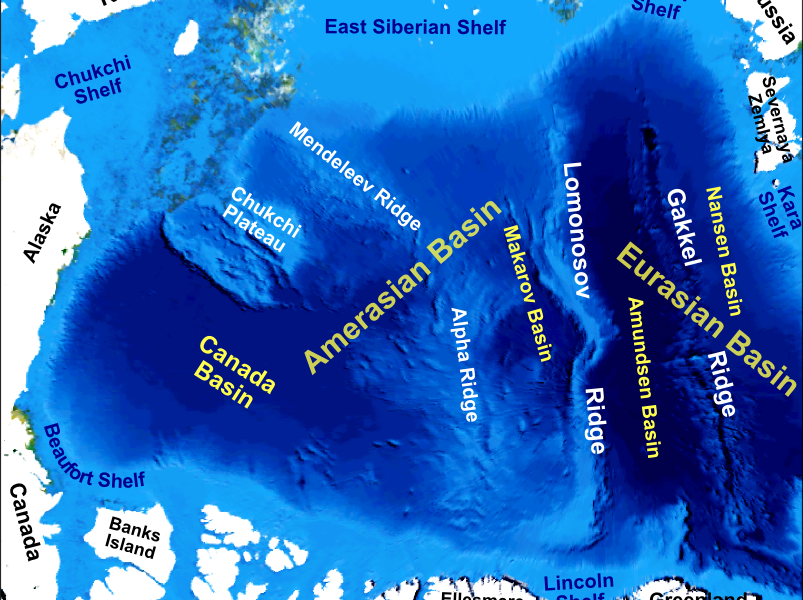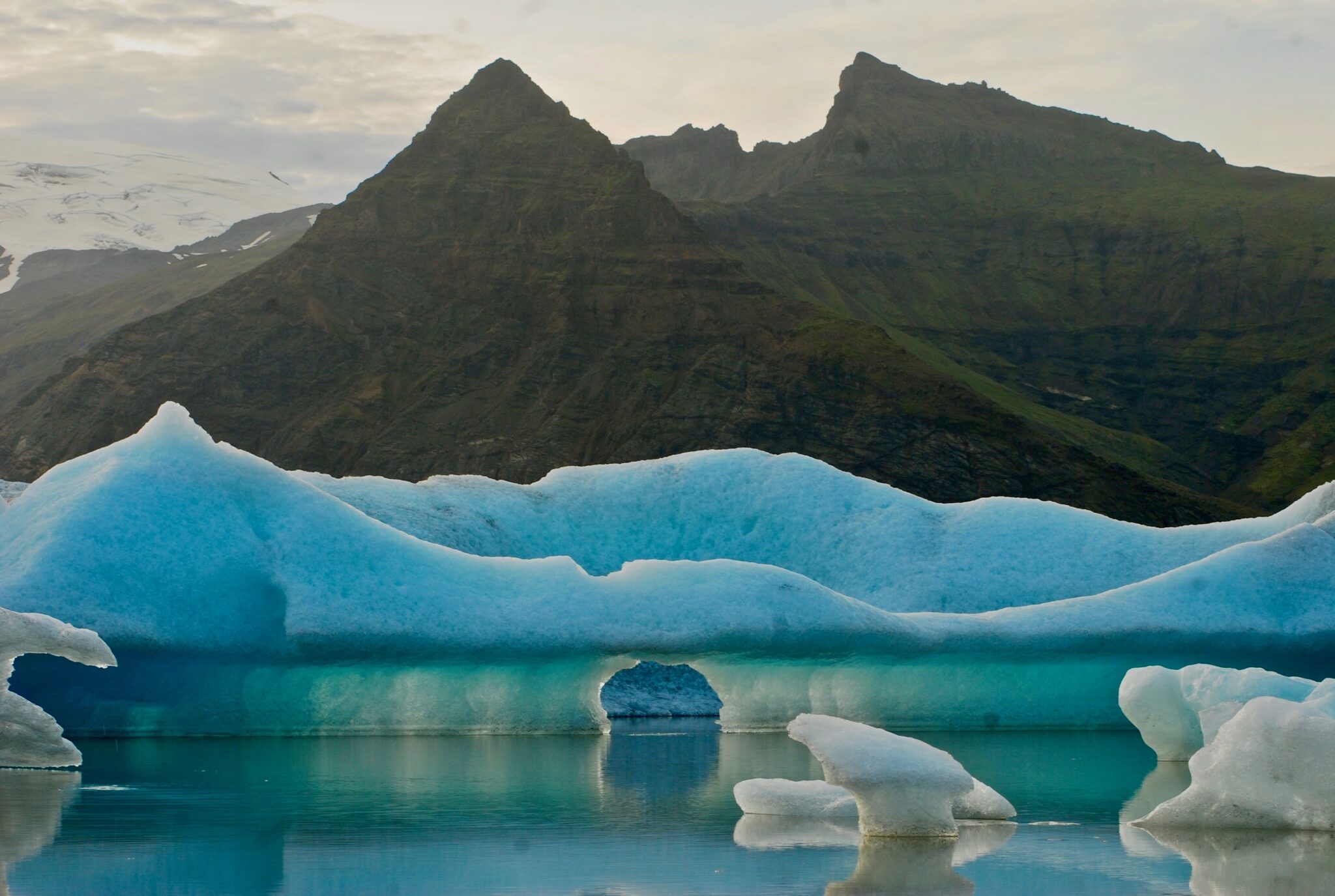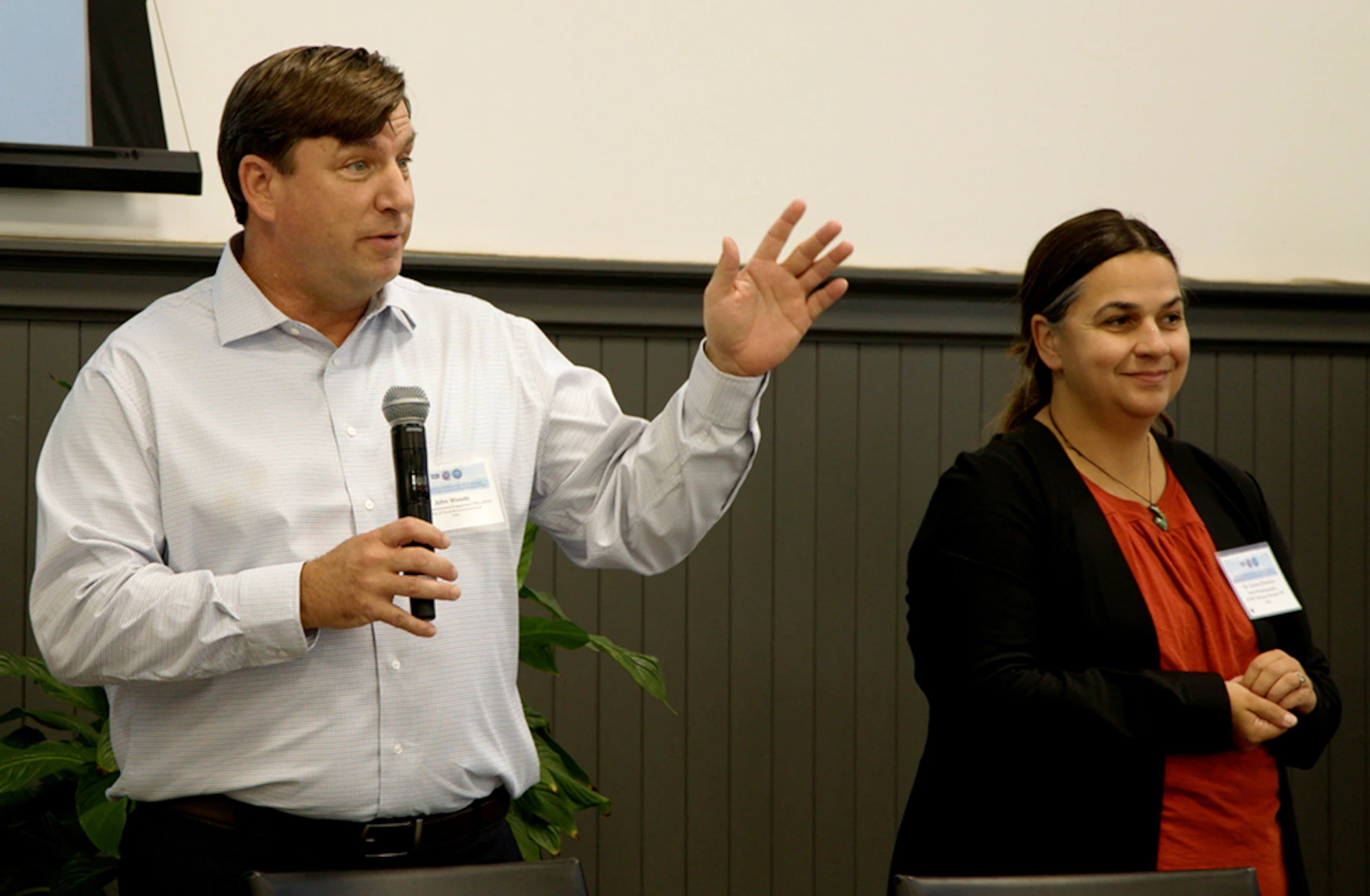Nation tries to expand northern presence as Canada increases spending on foreign policy in region.

Russia is claiming a “blood right interest” in an underwater ridge that extends from the northern tip of Greenland to Siberia, and is gathering evidence to claim sovereign rights over it at the United Nations.
Gakkel Ridge is 1,800 kilometres of underwater hills that make up the largest area of the Arctic Ocean that none of the world’s eight Arctic nations currently have sovereign rights over.
Kirill Degtyarev, head of the Geological Institute of Russian Academy of Sciences, made the statement Dec. 16 in an interview with Russian news outlet Interfax.
“[The ridge] is not just in the zone of our interest, but frankly, in the zone of blood right interest,” he said in the article, headlined “The new task of expanding the Russian Arctic shelf.”
A sovereign right over Gakkel Ridge would give Russia exclusivity to “explore and exploit its living and non-living resources, including minerals, oil, and life forms like clams that live fixed to the sea floor” under the UN Law of the Sea.
Russia and Canada have the largest and second-largest Arctic coastlines. Behind them are Denmark, Sweden, Norway, Iceland, Finland and the United States, which take up less than half of the remaining coastline.
“I think any time we see Russia talking about vital interests or blood interests, these are things that will obviously attract the attention of Canada and its allies because of how we’ve seen Russia weaponize those kind of ideas in other parts of the world,” said Whitney Lackenbauer, a professor at Trent University in Peterborough, Ont., whose specialties include circumpolar history and political studies.
Current geopolitics in the Arctic depend on plate tectonic processes that happened “millions and millions of years” ago, Lackenbauer said.
In the article, Degtyarev said that Russia is trying to scientifically prove to the UN that when the continents were being formed, Gakkel Ridge was a natural underwater extension of Eurasia rather than an independent formation.
If successful, the evidence will back Russia’s claim for sovereign rights over the ridge.
That’s the process all countries have to follow, and so far Russia “has fully adhered to international law,” Lackenbauer said.
The country has made several unsuccessful applications to assert rights over Gakkel Ridge over the years in 2001, 2015, 2021 and 2023. While it’s not entirely clear what is driving Russia’s interest, Lackenbauer said the region could potentially be a source of minerals, gas or oil.
However, other Arctic nations like Denmark might be able to make a case for sovereign rights over some areas of Gakkel Ridge as well. In that case, the two nations will have to find a diplomatic solution to divide the region.
“And right now, given what Russia has done with its brutal, unprovoked invasion of Ukraine and where we find ourselves in terms of geopolitics, it’s really hard to imagine,” Lackenbauer said.
Russia reaffirming its interest in the Arctic comes as Canada unveils its new Arctic defence and foreign policy.
Foreign Affairs Minister Mélanie Joly announced the policy Dec. 6, saying the Arctic is no longer a “low-tension” region and the new initiatives represent a “fundamental change” in Canada’s approach to the Arctic.
The Liberal government vowed to invest a total of $8.1 billion over the next five years and $73 billion over the next 20 years for Arctic defence. Canada will also appoint an Arctic ambassador and open consulates in Alaska and Greenland.
Lackenbauer, who in 2019 co-authored a book called Breaking the Ice Curtain about the relationship between the two biggest Arctic nations, said that in the near future it’s hard to imagine that the “ice curtain” would break.
“The global tensions have spilled over into the Arctic space,” he said, but added it’s very unlikely in his opinion that the tensions will lead to an armed conflict in the North.




